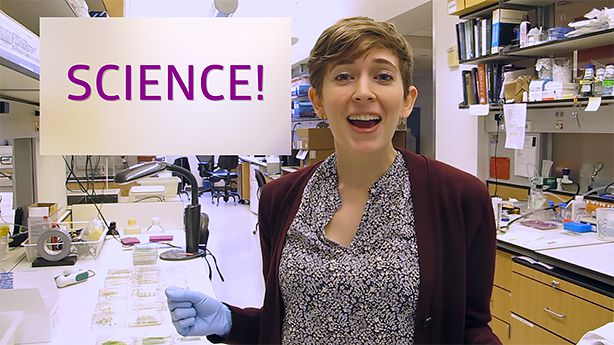
The YouTube series "Science in Real Life" takes a lively look at the day-to-day life of a scientist, opening the doors of the laboratory to show how the actual doing of science is short on memorizing and long on discovery.
Alumni launch YouTube science series to enlighten and entertain
Scientific explanations can at times feel dull and impenetrable, a frustration shared by anyone who has sat through a high school science lecture. But a group of Cornell alumni thinks communicating the joys of science can be exciting, and they've launched a YouTube series with the conviction that science can be edgy, informative and far from boring.
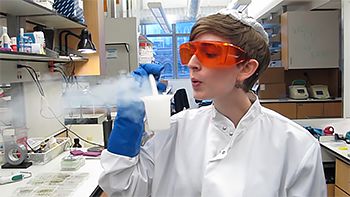
"We were looking for a novel way to communicate science," says Molly Edwards '12, the on-camera host, trained biologist and, as she professes tongue-in-cheek in the first episode, "super-legit science goddess."
Created by Molly Edwards '12, Silviana Russo '12 and Theo Wolf '13, the series "Science in Real Life" takes a lively look at the day-to-day life of a scientist, opening the doors of the laboratory to show how the actual doing of science is short on memorizing and long on discovery.
With quick-cut editing, pop-culture references and quirky humor – killer robots from the future, the handsomeness of certain fictional spies, and a stop-motion Tyrannosaurus Rex all provide comedic fodder in the pilot episode – the series promotes scientific literacy with a distinctive voice to appeal to a YouTube audience. The team tackles hard science by demonstrating intricate laboratory equipment and complex scientific concepts in an entertaining way, and all in about five minutes.
"We were looking for a novel way to communicate science," says Edwards, the on-camera host, trained biologist and, as she professes tongue-in-cheek in the first episode, "super-legit science goddess."
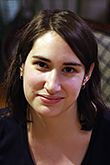
Silviana Russo '12
That's a credential hard won by Edwards. Along with her biology degree from the College of Agriculture and Life Sciences, she has worked as a lab technician at New York University and the New York Botanical Garden, and is now in a graduate program at Harvard University.
For someone who adores science, especially involving plants, she found her professional experiences thrilling to live but difficult to explain to non-scientist friends.
"I take it for granted what I do every day in the lab," she says. "For a lot of people, what happens in a science lab is really mysterious. We can all picture what a doctor or lawyer does at work, but what about a scientist?"
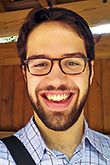
Theo Wolf '13
It was while sharing her career aspirations with Russo last year that Edwards hit upon her passion: to blend together creativity and hard science in a way that both enlightens and entertains. "I just want to get other people as excited about science as I am," she recalled telling Russo, an editor by trade who would soon take on director and producer titles for the nascent project.
Cornell has a storied history producing some of the world's most popular science communicators, from the venerable Carl Sagan to the zany brilliance of Bill Nye '77. With the YouTube series, this group of young Cornell alumni are embarking on a similar quest to celebrate the field as adventurous and inspiring rather than maligned as dull or uncool.
As YouTube has grown in stature as a reference tool for science, most content falls at two polar opposites: entertaining but overgeneralized videos on one end, to the dry and esoteric tutorials meant for fellow scientists on the other. Edwards saw that untapped middle ground as a vast potential audience, appealing to anyone with curiosity without requiring more than a high school education to grasp.
Finding a scientific 'voice'
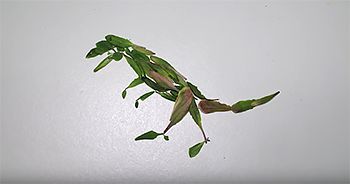
All the hard work provided moments of inspiration for the producers, like the stop-motion T-Rex that ends the first episode. "It was completely spur of the moment," Russo says of the gag inspired after a grueling eight hours of setting up shots. "It probably never would have happened if we hadn't all gone a little crazy from spending all day filming."
In the pilot episode, Edwards demonstrates a DNA extraction on Arabidopsis thaliana, a popular plant species used in molecular biology. The video takes the viewer through the protocol needed to isolate genes, from the use of a centrifuge and salty buffers to a nanospectrometer to verify the results. Forthcoming episodes delve into polymerase chain reaction technology; explanations of mitosis; a showcase of women in the STEM fields; and another on what Edwards calls "slice and dice botany," looking at what scientists can learn by shredding plants for microscopic observation.
The vision of the project, Edwards says, is "to keep the levity and excitement but also provide really great scientific content."
To find that voice, she relied on the help of Cornell friends she first met living at Risley Hall. That included Wolf, who as a College Scholar in the College of Arts and Sciences chartered his own independent major, studying humor.
Wolf, who helped punch up the scripts while living in Los Angeles, at first found it unfathomable that he could provide anything meaningful to the series. "I loved her idea but wasn't sure what I could bring to the table given my complete lack of scientific vocabulary – and understanding in general," Wolf says.
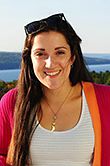
Aliana Heffernan '14
What he offered instead was a fluency in humor and the irreverent tangents and pop-culture references that add a lighthearted touch to the scripts and science supplied by Edwards and Russo.
Getting to a finished five-minute product required many more hours of work, with Russo and Edwards doing much of the heavy lifting of script writing, booking guest scientists, scouting locations, filming and post-production.
With five complete episodes nearly finished and Aliana Heffernan '14 recently joining the team as a digital marketing specialist, the Cornell cast and crew are hopeful their work can find an audience. The team expects to start work soon on a second season.
"When you have a career as a scientist, it's hard to have art be a significant part of your professional life," says Edwards. "I am glad to be part of a major creative endeavor and link it to the science I do."